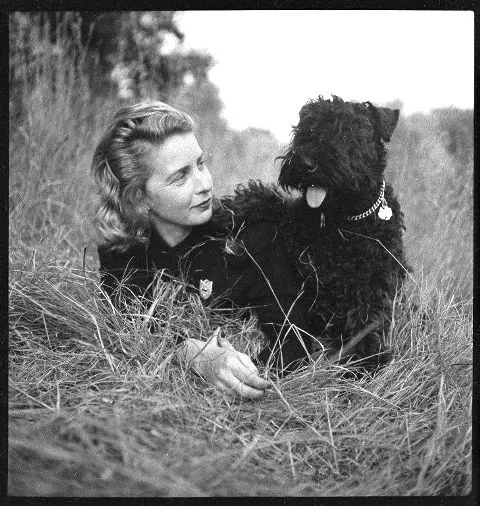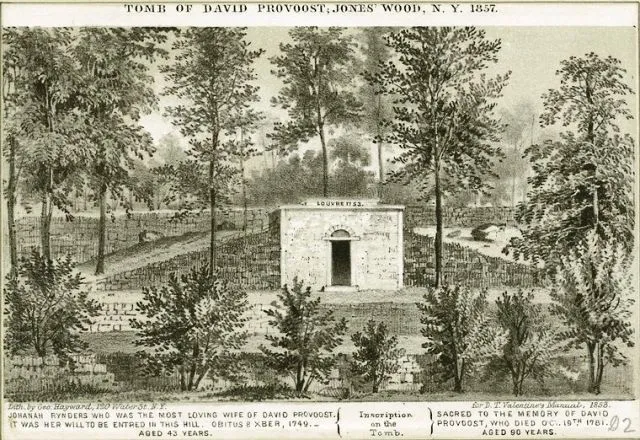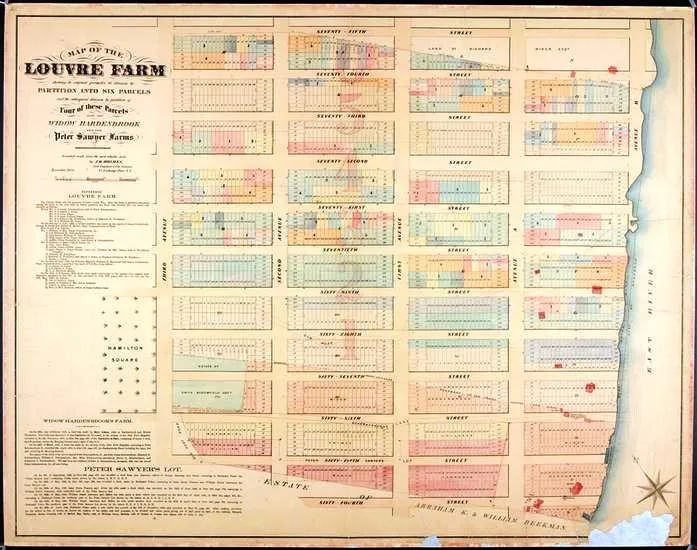In the realm of beloved children’s literature, Mister Dog: The Dog Who Belonged to Himself stands as a testament to the imagination and unique perspective of its author, Margaret Wise Brown. While the story itself is a heartwarming tale of a solitary dog seeking companionship, its genesis is as fascinating as the narrative, rooted in a real-life canine companion and a hidden corner of New York City. This article delves into the story behind the story, exploring the inspiration, the historical setting, and the enduring legacy of Mister Dog, aiming to provide a comprehensive and SEO-optimized exploration for English-speaking audiences.
Margaret Wise Brown, celebrated for timeless classics such as Goodnight Moon and The Runaway Bunny, penned her final book, Mister Dog, around 1945. The immediate spark for this literary creation was her beloved Kerry blue terrier, Crispin’s Crispian. This charming dog was not just a pet; he was the muse for a story about a dog who, as the title suggests, possessed a profound sense of self-ownership and embarked on a journey to find a friend. The book was brought to life visually by the renowned illustrator Garth Williams, famous for his work on the Little House series and Charlotte’s Web. It’s highly probable that Williams drew inspiration from the very setting where Brown wrote her tale, a tiny, secluded frame house situated on a cobble court in the Lenox Hill area of New York City.
 Crispin's Crispian, the terrier who inspired Margaret Wise Brown's 'Mister Dog'
Crispin's Crispian, the terrier who inspired Margaret Wise Brown's 'Mister Dog'
This hidden dwelling, believed to be an 18th-century farmhouse, remained concealed from public view for approximately 75 years. Its dramatic reappearance occurred in February 1966, when the demolition of several old apartment buildings and a church on York Avenue, between East 71st and East 72nd Streets, revealed the quaint cobble court and the modest house. It was within these humble walls, a space Margaret Wise Brown occupied for a brief period during her illustrious career, that Mister Dog was conceived.
The Historical Tapestry of Louvre Farm
To truly appreciate the context of Mister Dog and its canine protagonist, we must journey back in time to understand the area where Margaret Wise Brown found her inspiration. The land where this secluded house once stood was part of a much larger estate known as the Old Louvre Farm, a significant parcel of land in what is now Manhattan’s Upper East Side.
From Forest Primeval to Developed Estates
In its earliest days, the area was a stark contrast to the bustling metropolis it is today. Described as a “dense and spooky forest” on the bluffs overlooking the East River, it was a wild and untamed landscape far removed from the nascent city. This vast expanse, encompassing about 90 acres, stretched from the Old Boston Post Road (near present-day Third Avenue) to the East River, situated between what are now 66th and 75th Streets.
The history of this land is a complex tapestry of ownership transfers. Beginning in 1677 with grants from Sir Edmund Andros, the governor of the Province of New York, the land passed through various hands over the subsequent century. Key figures in this early ownership included John Bassett, Cornelius Mattyson, William Green, William Hallett, George Hallett, Johannes Peterson, and Abraham Lameter.
A pivotal moment arrived in 1742 when Abraham Lameter sold the entire 90-acre farm to David Provost. Provost, a prosperous New York City merchant and privateer, was so wealthy he was nicknamed “Ready-Money Provost,” with rumors circulating about hidden stashes of his fortune. He established his grand country estate on this land, building a magnificent mansion near the river, which he christened the Louvre Farm.
 A 1781 illustration of David Provost's tomb, a historical marker in the area.
A 1781 illustration of David Provost's tomb, a historical marker in the area.
Following David Provost’s death in 1781, the farm was transferred to his second wife, Sarah Bolton Loftus, and later, in 1787, to his grandson, James Provost. James divided the property amongst his siblings, retaining a parcel for himself. It is during this period that a small, unassuming frame farmhouse on a cobble court is believed to have been constructed, a structure destined to become a significant literary site.
Jones’ Woods: A Public Playground and Development Hub
Around 1800, the land transitioned to John Jones, an affluent innkeeper and merchant, who sought a country retreat near New York. After his death in 1806, the farm was again subdivided among his children, leading to the area becoming known as Jones’ Woods.
 An 1868 map of the Louvre Farm reveals sparse development, highlighting the rural nature of the area.
An 1868 map of the Louvre Farm reveals sparse development, highlighting the rural nature of the area.
The history of Jones’ Woods is intertwined with the ambitions of New York City to establish a grand central park. In 1853, a proposal was made to create Central Park on this land. However, due to opposition from the Jones’ heirs and the land’s perceived inaccessibility, the plan ultimately failed, and the land was not acquired for Central Park. Instead, a portion of the land was leased for use as a public picnic ground, earning the moniker “America’s first amusement park.” It offered a plethora of attractions, including billiards, bowling, shooting galleries, and live entertainment, becoming a popular resort for working-class New Yorkers.
During the Civil War, Jones’ Woods also served as a military training ground. Later, under various proprietors, it housed establishments like the Jones’ Woods Hotel and hosted events for social clubs such as the New York Caledonian Club. Development began to creep into the area, with new roads being opened and properties being advertised for residential use.
By the late 19th century, the landscape of Jones’ Woods was undergoing a significant transformation. John F. Schultheis became the proprietor in 1872, establishing a large “Coliseum” for spectators and a second picnic ground known as Washington Park. While development progressed, the historic old Provost mansion, by then a dilapidated ruin, remained.
A significant event occurred in 1894 when a fire near the Coliseum and the old Provost mansion destroyed much of the area. However, the historical significance of this location was far from over. Decades later, the demolition of buildings in 1966 would inadvertently uncover the very spot where Mister Dog was born.
The Literary Legacy of “Mr. Dog”
Mister Dog: The Dog Who Belonged to Himself by Margaret Wise Brown, with illustrations by Garth Williams, is more than just a children’s book; it’s a window into a specific moment in literary history and a beloved character. The story’s core message about a dog’s independent spirit and his quest for connection resonates deeply with readers of all ages. The tale of Mr. Dog, a creature who lives by his own rules and desires companionship on his own terms, likely mirrored Brown’s own observations of her terrier, Crispin’s Crispian.
The inspiration for the book’s unique protagonist can be seen in Crispin’s Crispian himself. Margaret Wise Brown’s intimate relationship with her dog provided the emotional and narrative foundation for Mister Dog. The dog’s inherent qualities, perhaps his independence or his subtle expressions of affection, translated into the charming character that has captured the hearts of generations.
Garth Williams’ illustrations further cemented the book’s place in children’s literature. His ability to capture the essence of animals and create relatable characters was unparalleled. It is plausible that Williams visited the very house and its surroundings where Brown wrote the story, incorporating elements of the hidden New York City locale into his artwork, further enriching the reader’s experience and connection to the narrative.
The enduring appeal of Mister Dog lies in several key aspects:
- The concept of self-possession: The idea of a dog who “belonged to himself” was remarkably progressive and intriguing, particularly for its time. It speaks to themes of autonomy and individuality, even in the animal kingdom.
- The universal search for belonging: Mr. Dog’s journey to find a friend is a relatable metaphor for the human (and animal) need for connection and companionship.
- Margaret Wise Brown’s gentle storytelling: Her prose is known for its simplicity, rhythm, and emotional depth, creating a comforting and engaging reading experience.
- Garth Williams’ iconic illustrations: His warm and expressive drawings bring the characters and their world to vivid life.
The story of Mister Dog and its origins in a hidden New York City farmhouse, inspired by a devoted terrier, offers a delightful glimpse into the creative process of one of America’s most cherished children’s authors. It reminds us that inspiration can be found in the most unexpected places, and that even the simplest tales can carry profound messages about love, friendship, and the essence of being oneself.
In Part II, we’ll delve deeper into the 1868 period and the subsequent development of Lot 4 of the old Louvre Farm, exploring how this land transitioned from a dairy operation to a residential area, further shaping the environment around the literary inspiration for Mister Dog.
